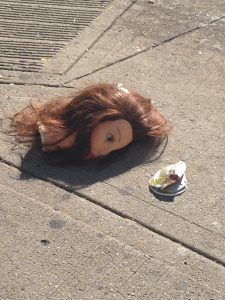I’m not a devoted true crime reader, but over the years I’ve picked up books in that popular genre to learn about real crimes, criminals and law enforcement. Some of the books don’t provide anything that a mystery fiction writer would find useful, but others have given me strange insights into the reality of criminality—as opposed to the ready for prime time master criminals, chased by gorgeous but flawed detectives (some with super powers) that dominate the realm of fictional crime.
Real criminals are often sad, disturbed and disturbing individuals. Real detectives are often intelligent, overworked and stressed by the burdens of what they have seen on the job.
The combination is less glamorous than fiction and rarely yields the tidy endings we associate with the final pages of an Agatha Christie. More often than not, true crimes are partially resolved with mixed verdicts in court; unsatisfying plea-bargains; confusing rulings over evidence; opportunities missed by investigators, prosecutors or defense attorneys; and the malaise that descends over any endeavor that takes years to get to its conclusion.
One of the odder books I read this summer was a memoir written in a ‘novelistic’ style by a man that believes his birth father was the Zodiac killer. The book has vivid descriptions of his father’s murderous escapades and a bad childhood backstory for the killer’s developmental years. About midway through the book I paused to ask the unanswerable question…. If I suspected that my late father (long lost grandmother, estranged second cousin, childhood neighbor, etc.) was a notorious serial killer, would I choose to write about it? Would I want to claim the personal connection to criminal and his or her crimes? Nope. I wouldn’t.
Would you?





